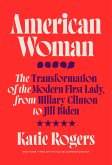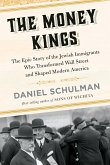THE NEW YORK TIMES BOOK REVIEW EDITORS' CHOICE • From the acclaimed author of What the Ermine Saw and Behaving Badly, a portrait of Victoria Woodhull, a celebrated and maligned 19th-century businesswoman and activist, and a leader in the fight for women’s suffrage and labor reforms. In 1894, a remarkably self-possessed American woman, with no formal education to speak of, stood before a British court seeking damages for libel from the trustees of the British Museum. It was yet another stop along the unpredictable route that was Victoria Woodhull’s life. Born dirt-poor in an obscure Ohio settlement, Woodhull was the daughter of an illiterate mother entranced by the fad of Mesmerism—a therapeutic pseudoscience—and a swindler father whose cons exploited his two daughters. It was through her mother, though, that Woodhull familiarized herself with the supernatural realm, earning a degree of fame as a clairvoyant and her first taste of financial success. Woodhull’s life would continue to turn on its axis and then turn again. Despite a deeply troubled first marriage at the age of fourteen, countless attempts by the press to discredit her, and a wrongful jail sentence, Woodhull thrived through sheer determination and the strength of her bond with her sister Tennie. She co-founded a successful stock brokerage on Wall Street, launched a newspaper, and became the first woman to run for president. Hers was a rags-to-riches story that saw her cross paths with Karl Marx, Henry Ward Beecher, and Frederick Douglass. In an era when women’s rights were circumscribed, and the idea of leaving a marriage was taboo, she broke the rules to carve out a path of her own. Vividly written and exhaustively researched, Collinsworth tells the story of a woman truly ahead of her time—a radical visionary who made defying mores a habit and brought to the fore societal and political issues still being addressed today. Neither a saint nor a villain, Woodhull emerges as an iconic, complex woman: an entrepreneur; lover of freedom; and a fiercely loyal family member whose political activism and suffragist legacy will cement her in history.
Bitte wählen Sie Ihr Anliegen aus.
Rechnungen
Retourenschein anfordern
Bestellstatus
Storno








